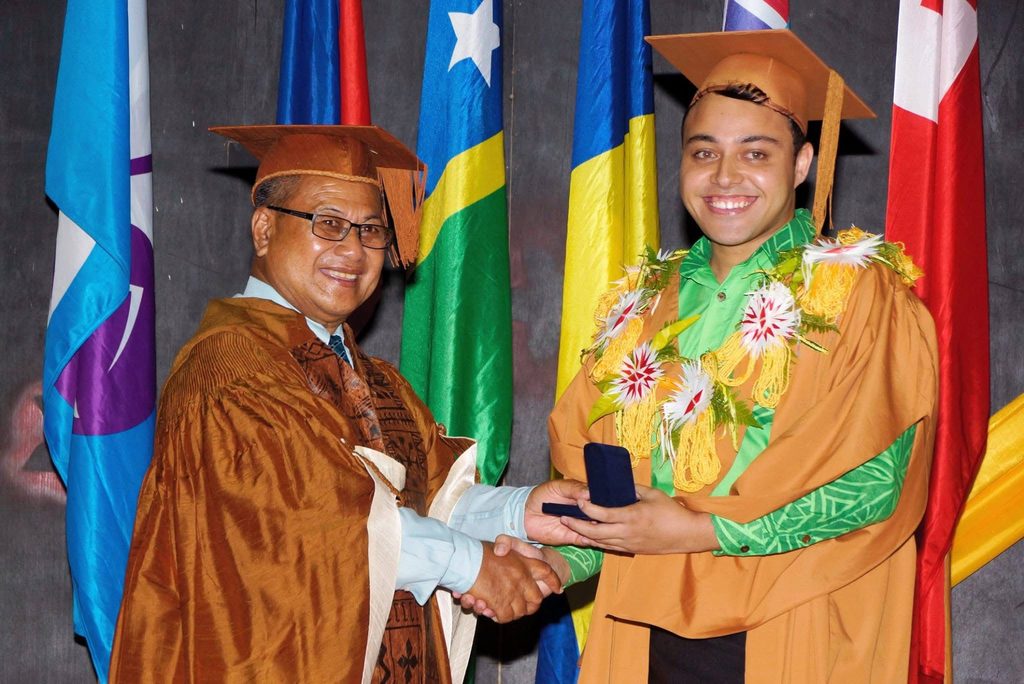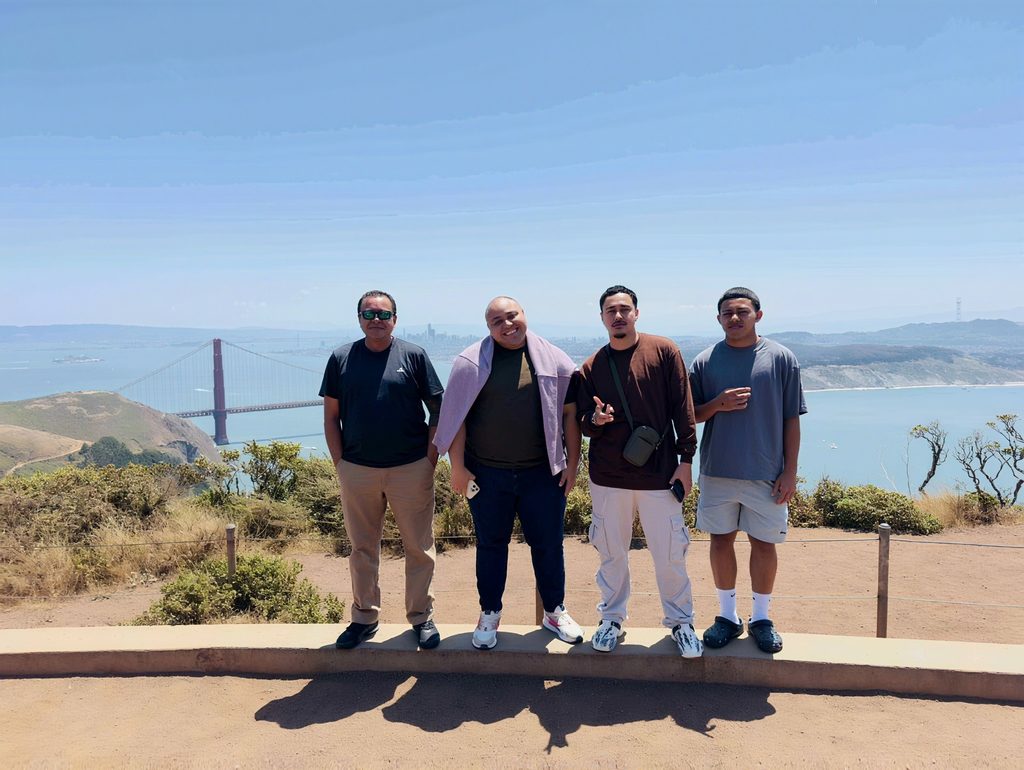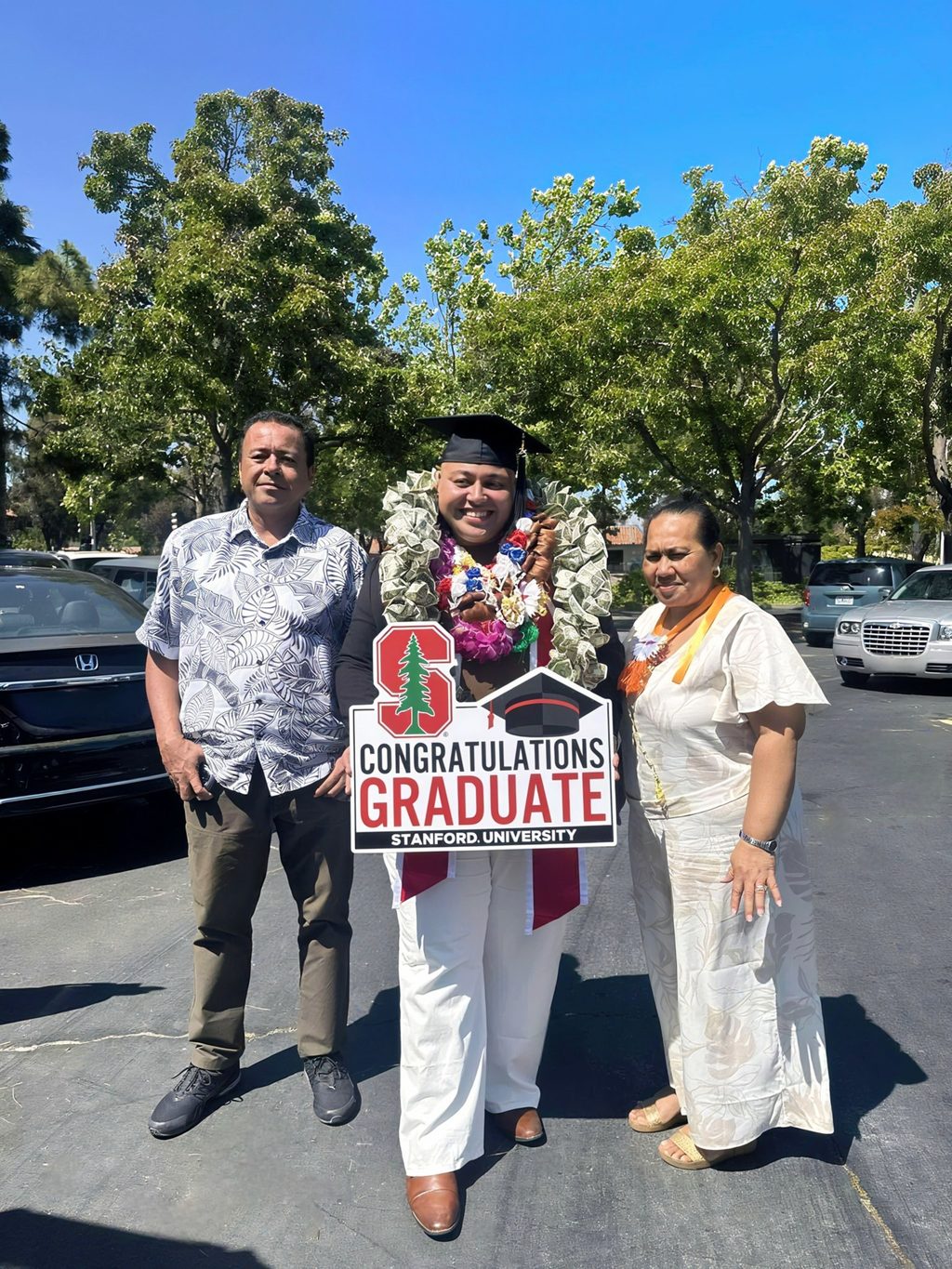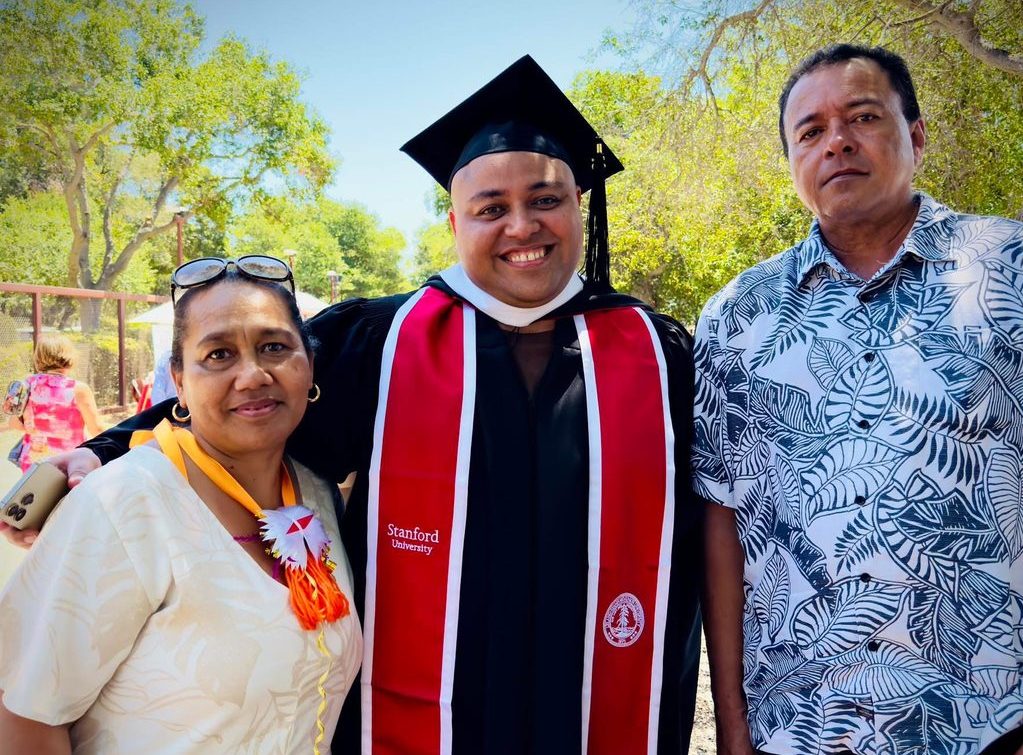WILFRED Singh Fimone could possibly be the first Rotuman to graduate from Stanford University with Masters in Linguistics.
The 33-year-old was part of Stanford’s largest ever graduating class of 2025.
Wilfred, who has paternal links to Itu’ti’u in Rotuma and maternal links to Itu’muta, is also the first in his family to receive such an incredible linguistic accolade from the prestigious Stanford University in California.
Love for linguistics
Wilfred’s love for linguistics started at such a young age.
“I think it (interest in linguistics) might have started when I returned from a six-month trip from New Zealand when I was three,” he said.
“I recall my parents laughing at an accent shift at the airport. I have lost the accent, but that incident caused me to be conscious about the way people speak and what factors cause them to shift parts of their accents.
“I also remember as a 13-year-old, I taught myself to draw tree diagrams, as a way of visualising phrase and sentence structure, from an edition of the Houghton Mifflin English Grammar and Composition book — a text for teachers.
Wilfred grew up in Nadera and attended Marist Brothers Primary School before going to Yat Sen Secondary School and the University of the South Pacific for tertiary studies.
Noticing a dearth of work conducted by indigenous speakers on their languages, fueled Wilfred’s passion to carry out research on Rotuma and Fiji English.
As he completed his MA in Linguistics, Wilfred took the next step. He decided to pursue PhD studies where he applied to several universities around the world.
“Part of Stanford’s recruitment process involved four interviews over two weeks – it was a tiring process, especially since I was also being interviewed by other universities around the same time.
“Back at USP, I wrote an MA thesis on Rotuman and won a gold medal for it. I got a gold medal for my undergraduate linguistics degree, and I also had stellar linguists vouch for me in my application, all of that helped.
From walking the corridors of a South Pacific university to entering the doors of Stanford — Wilfred was already making waves as a young Pacific Island student out in the world.
With linguistics being close to his heart, he knew he had to grasp the opportunity as tightly as he can.
“I love linguistics because its relevant to every aspect of life, after all we all use languages to communicate.
“The field of linguistics is adapting and changing as the world changes. Linguists have played a key role in the development of technology and artificial intelligence.
For instance ChatGPT, Google Maps, Siri, Alexa and other AI-powered tools rely on those with expertise in linguistics.
Battling Cancer
In his first year of studies at Stanford, Wilfred was diagnosed with thyroid cancer.
“I discovered two lumps around my throat/neck area, and I was trained well to know that one had to be my larynx (Adam’s apple or voice box) and the other one …something else. Believe it or not, my USP linguistics training, specifically in articulatory phonetics helped and it saved my life.
“That’s when I knew something was wrong, so I made an appointment to see a doctor the next week.
“It was more than a balancing act. I had to check my sanity many times. I was fortunate to have been medically insured by Stanford and received world class care and treatment at Stanford Hospital.
He decided to continue with his masters studies, of course with supports from advisors, family and friends.
“I was lucky that the cancer I had wasn’t the aggressive type and the prognosis was good. I’m happy to share that I’m in remission.
He said praying and talking to his close family and friends through video calls helped him overcome those tough moments in his life.
“I’ve paused the PhD for a moment and will return to it when I feel I have enough bandwidth to study. I’ve also applied to a few places but I’m just going wherever life takes me.
“I’m blessed with the freedom to choose, not many people can say the same.
A need for linguistics in the Pacific
He said there was a dire need for more linguistics in the Pacific.
“One there is disproportionately only a handful of Pacific Islanders are researching their own languages. We are the emic experts, having grown up using our languages, so there is the advantage of seeing the world differently through the languages we use than non-Pacific Islanders would be able to.
“Second, the solutions to a lot of the problems we face in society can be found in linguistics and languages.
He said there was likely that Stanford Pacific Islanders and Native Hawaiian student population at Stanford was less than one per cent so it was at times lonely not having a lot of people who understood Pacific norms.
“It was also intimidating but I contributed to class discussions and engaged in assignments by drawing on my knowledge on Pacific examples and experiences. I was also a teaching assistant for a linguistics course and I had some from Guam in my class.
“It was so nice to discuss similar experiences with them in class and assignments.
Word of advice
His advice to islanders keen to take up linguistics or study at Stanford is to dream big.
“There is no stopping to what the mind and human spirit can do.
He said his family, friends, advisors and mentors have been there for him since day one.
“It takes a village. I’ve been blessed to have a lot of family and friends (too many to name) who supported me financially, emotionally and spiritually, especially my parents, grandparents, brothers and aunts.
“I also can’t forget how instrumental my mentors have been for me often dropping things to accommodate my needs and requests, such as last-minute meetings and extensions.”

Wilfred graduating with his BA from USP in 2015. Picture: UNIVERSITY OF THE SOUTH PACIFIC

Wilfred with his dad and brothers at San Francisco. Picture: SUPPLIED

Wilfred Singh Fimone with his parents after the graduation ceremony. Picture: SUPPLIED



